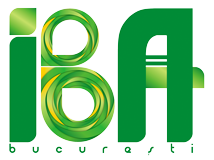In a decisive move to protect public health, Switzerland has adopted new regulations targeting the gradual elimination of controversial chemical compounds—bisphenols—from materials that come into contact with food. The measure, announced by the Federal Food Safety and Veterinary Office (FSVO), came into force on July 1, 2025, and aims to align Swiss legislation with the latest European food safety standards.
Bisphenols are a class of chemical compounds that have been used for decades in the production of plastics, epoxy resins, lacquers, and coatings—all commonly found in food packaging or the inner linings of cans. The most well-known of these substances is Bisphenol A (BPA), whose toxicity has been extensively documented. It has been linked to endocrine disruption, reproductive issues, and even cancer and genetic mutations.
Under the new regulations, Switzerland bans the use of BPA and other hazardous bisphenols in all food-contact materials—specifically in coatings and lacquers—with just one exception: large-scale industrial containers over 1,000 liters used in professional settings.
Manufacturers wishing to prove their materials comply with the new standards will need to use highly sensitive testing methods capable of detecting trace amounts of bisphenols—less than 1 microgram per kilogram of food. Any residue above this limit will be deemed non-compliant.
However, experts have pointed out a significant loophole in the regulation. The FSVO defines banned bisphenols in a narrowly specific way, referring only to those whose phenol groups are linked by a single atom. This wording excludes other types of bisphenols, such as Bisphenol M and Bisphenol P—compounds that, although less well-known, may have similar health effects. For example, Bisphenol M has already been identified by the European Chemicals Agency (ECHA) as a potential endocrine disruptor.
The transition to a bisphenol-free industry will be gradual. Although the ban took effect in early July, single-use products that don’t meet the new standards may remain on the market until July 2026. For reusable packaging or industrial applications, the final deadline is January 2029.
This measure comes at a time when concerns about food contamination from hazardous chemicals are increasingly widespread. Switzerland seems determined to take the lead in limiting public exposure to these compounds—an effort that may influence other countries to follow suit.
It remains to be seen whether the current gaps in the regulation will be addressed in time. But even in its current form, the ban represents a significant step forward toward safer food and a more responsible packaging industry.
Source AFFIDIA JURNAL.

